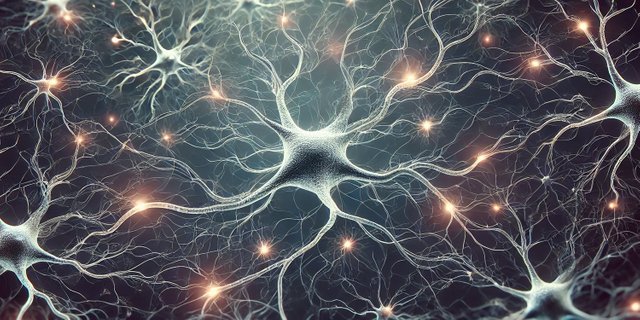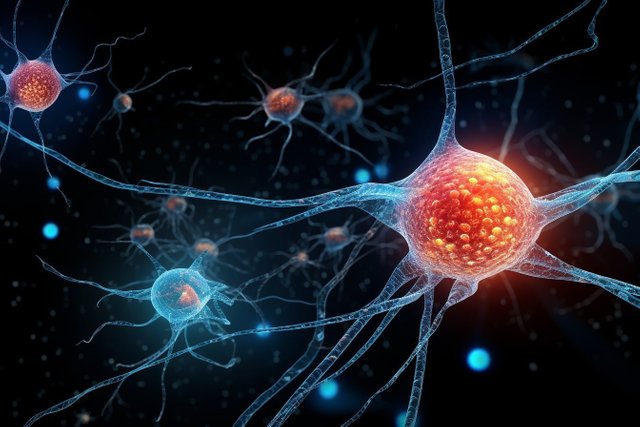Scientists have managed to rejuvenate brain neurons for the first time/Científicos lograron rejuvenecer neuronas del cerebro por primera vez

Source
Yamanaka factors were discovered in 2006 and have since been used to “reprogram” mature cells back to a state similar to that of induced pluripotent stem cells (iPSCs). This means that by applying them, it is possible to “erase” aging and specific changes in specialized cells, allowing them to renew or differentiate again into any cell type in the body.
Los factores de Yamanaka se descubrieron en 2006 y han sido usados desde entonces para “reprogramar” células maduras y devolverlas a un estado similar al de células madre pluripotentes inducidas (iPSCs). Esto significa que, al aplicarlos, es posible “borrar” el envejecimiento y los cambios específicos de células especializadas, haciendo que puedan renovarse o diferenciarse nuevamente en cualquier tipo celular del organismo.
But when it comes to brain cells, things get complicated. The brain contains billions of neurons interconnected in incredibly intricate ways. Neurons are highly specialized cells, and unlike other cells that can easily divide and regenerate, adult neurons often lose this ability.
Pero en el caso de las células del cerebro la cosa se complica, el cerebro contiene cientos de miles de millones de neuronas interconectadas de formas increíblemente intrincadas. Las neuronas son células altamente especializadas que, a diferencia de otras células que pueden dividirse y regenerarse fácilmente, las neuronas adultas suelen perder esta capacidad.

Source
Now a group of researchers from the University of Barcelona, the Institute for Biomedical Research and the Max Planck Institute have managed to rejuvenate neurons in the brains of mice through cellular reprogramming, using the aforementioned “Yamanaka factors”, but now is the first time that they have been safely applied to the brain.
Ahora un grupo de investigadores de la Universidad de Barcelona, el Instituto de Investigación Biomédica y el Instituto Max Planck han logrado rejuvenecer neuronas en el cerebro de ratones mediante reprogramación celular, empleando los mencionados “factores de Yamanaka”, pero ahora es la primera vez que se aplican de forma segura en el cerebro.
In the study, by inducing these factors in mature neurons, an increase in synaptic connections and metabolic stability was observed, without causing unwanted cell proliferation, which avoids the risk of tumors. This rejuvenation allows for an improvement in neuronal plasticity and in the ability to form new memories, essential factors in the fight against neurodegenerative diseases.
En el estudio, al inducir estos factores en neuronas maduras, se observó un incremento en las conexiones sinápticas y la estabilidad del metabolismo, sin causar proliferación celular no deseada, lo que evita riesgos de tumores. Este rejuvenecimiento permite una mejora en la plasticidad neuronal y en la capacidad de formar nuevas memorias, factores esenciales en la lucha contra enfermedades neurodegenerativas.

Source
In the long term, this research could lead to the development of new therapies to treat neurodegenerative diseases such as Alzheimer's and potentially slow brain aging in general, offering new hope for millions of people suffering from these diseases and their families.
A largo plazo, esta investigación podría conducir al desarrollo de nuevas terapias para tratar enfermedades neuro degenerativas como el Alzheimer y, potencialmente, ralentizar el envejecimiento cerebral en general, lo que ofrece una nueva esperanza para millones de personas que sufren este tipo de enfermedades y sus familias.
Although this achievement is promising, several challenges remain to be overcome before these neuron rejuvenation techniques can be safely applied to humans. It is still unknown how long the rejuvenating effect on neurons lasts and whether the benefits can be maintained without the need for continuous reprogramming and it is essential to investigate whether the human brain will respond in the same way as that of mice.
Aunque este logro es prometedor, quedan varios retos por superar antes de que estas técnicas de rejuvenecimiento neuronal se puedan aplicar de manera segura en humanos. Aún se desconoce cuánto tiempo dura el efecto rejuvenecedor en las neuronas y si es posible mantener los beneficios sin necesidad de reprogramación continua y es fundamental investigar si el cerebro humano responderá de la misma manera que el de los ratones.
More information/Más información
https://www.neurociencies.ub.edu/ubneuro-researchers-rejuvenate-brain-neurons-through-cellular-reprogramming-more-neurons-and-more-brain-plasticity/#:~:text=A%20research%20study%20led%20by,altered%20neurological%20properties%20and%20functions.
I actually love what the scientists are doing because they are going a long way to help transformation in our society by this latest development. I believe more and more will definitely come
Hi, @mauromar,
Your post has been manually curated!
Que bueno que se asoma una pequeña luz de esperanza para las personas que padecen enfermedades neurodegenerativas como el Alzheimer.
Mis mayores deseos para que la ciencia logre detener esas terribles enfermedades que afectan no solo a las personas que las padecen sino a sus familiares.
Gracias por compartir.
¡Saludos y bendiciones!